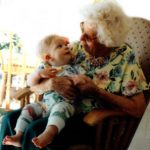A very warm welcome to the January edition of the makeabigdifference newsletter and on behalf of Young Heroes I wish you all a very happy new year.
The beginning of a new year is the perfect time to take control of your health and in this month’s newsletter you can read our ‘6 steps to a healthier and happier new year’ where we detail 6 life changes which could reduce your chance of developing certain cancers and other life threatening diseases.
Can regular air travel lead to cancer? Does sugar cause cancer to grow faster? Is cancer hereditary or can it be ‘caught’ from others?
We challenge another 4 of the most common cancer myths and extract fact from fiction in this months ‘Cancer Controversies’.
We also hear from the Impact Living volunteer who has pledged to stop smoking for Young Heroes and the latest cancer news, which this month explains why cancer survival rates in Britain still lag behind those in other Western countries.
Due to technical difficulties there will be no Katie’s Corner this month however we promise she will be back in February with another exciting article. We would also like to apologise for the poor service on our website over the beginning of January. this was due to a malicious hacking attack to our web hosting company which affected over 700 other sites as well as our own. The problem has been fixed and this also gave us the opportunity to do a little redesign to our website. Please have a look around and let us know what you think.
Young Heroes would also like to send our sincere condolences to the family of Dean Jeffrey’s who passed away 10th January 2011.
Kim Tetlaw
Editor
Thank you
Young Heroes would like to thank Ken Rees and the Anglican Parish of St Laurence in Lanzarote for their extremely kind donation of £350
Help Robert kick the habit
Both Impact Living and Impact Young Heroes do their utmost to promote healthy living to their tenants whether it be tips on healthy eating, shopping for healthy foods, good places to exercise or smoking cessation.
What better role model than Impact volunteer Robert Wood’s who has pledged to stop smoking in aid of charity for his new years resolution. Robert has successfully managed 28 days without a cigarette and puts his determination down to his baby daughter due in April. “I have tried quitting a couple of times before but never had any drive to do it” says Robert.
Already the 21 year old has noticed a difference within his health “Even thought it’s only been a fortnight my appetite has come back, I have more energy, I can breathe easier first thing in the morning and I’m not reliant upon cigarettes in times of stress”.
We are delighted that Robert chose Young Heroes to donate sponsorship money to and we
wish him the very best of luck.
If you would like to show your support to Robert and the charity, you can donate online by visiting his Just Giving page http://www.justgiving.com/Robert-Woods0.
Six Steps for a Healthier New Year
The beginning of a new year is the perfect time to take control of your health and develop a strategy that will help you reach your goals for the coming year.
Did you know that researchers estimate that about one-third of the deaths from cancer can be prevented? Many types of cancer are related to lifestyle factors such as diet, obesity, smoking, and lack of physical activity. In addition, changing these behaviors can lower your risk for other diseases as well.
Although the risk of developing cancer can be greatly reduced by avoiding risk factors, not all cancers are preventable. Here are seven tips to help you have a healthier and happier new year:
1. Quit smoking.
If you do nothing else, do this. Smoking is the single greatest preventable cause of cancer, and has been linked to cancers of the lung, bladder, pancreas, kidney, nose and mouth, stomach, cervix, prostate, and colon, as well as heart disease, miscarriage, colds, ear infections, and asthma and bronchitis among children living in households where family members smoke.
For more information about quitting and a free Quit Kit please visit http://smokefree.nhs.uk/.
2. Maintain a healthy weight.
Being overweight may increase your risk for cancers of the breast, colon, esophagus, kidney, prostate, and uterus. Having a body mass index (BMI) of 25 to 29.9 is considered overweight and 30 and above is considered obese. A BMI is the measure of body fat based on height and weight that applies to both adult men and women. Being physically active for at least 30 minutes each day and eating a diet rich in vegetables, fruits, and whole grains can help you maintain a healthy weight. Read more about weight control and obesity and cancer. For information about healthy living please visit http://www.eatwell.gov.uk.
3. Exercise regularly.
Several studies have shown that regular physical activity can significantly reduce the risk of colon cancer. What’s more, there is evidence showing that exercise may also help in preventing other types of cancer, such as breast, uterine, prostate, kidney, and lower esophageal cancers. Talk with your doctor and health care team about an exercise plan that is appropriate for your medical history and individual fitness goals. Check where your local leisure centre is or source the nearest gym; they will be able to assist you with an exercise and fitness plan.
4. Limit alcohol consumption.
Alcohol has been linked to cancers of the breast, colon, mouth, esophagus, liver, and larynx (voice box). If you drink alcohol, limit consumption to one drink a day for women and two drinks a day for men (whether it’s a glass of wine or bottle of beer) and choose nonalcoholic beverages at meals and parties. If you are a heavy drinker, it is not too late to start cutting down. Scientists recently showed that the risk of mouth and oesophageal cancers drops dramatically in heavy drinkers who stop drinking.
5. Protect your skin from the sun.
Skin cancer is now the 4th most common type of cancer for men and women of all ages. And it’s the most common for women in their 20s.
If your skin has gone red in the sun, it’s burnt. It doesn’t have to be raw or blistering. Sunburn is when UV rays have damaged your skin cells. This can cause them to start growing out of control, which can cause skin cancer. The best way to prevent all types of skin cancer is to avoid overexposure to the sun. Do not spend long periods in the sun during the day and make sure you spend time in the shade and cover up with clothes as well as sunscreen. Sunscreen should be applied around 15 minutes before you go into the sun and reapplied every two hours. If you are planning to spend time in the water, use a waterproof sunscreen. For more information about skin cancer please visit http://www.nhs.uk/Conditions/Malignant-melanoma/Pages/Introduction.aspx.
6. Know the seven warning signs of cancer.
Knowing the most common symptoms of cancer is important in helping to detect cancer early. The following are possible symptoms of cancer. Sometimes, people with cancer do not show any symptoms. Or, these symptoms may be similar to symptoms of other medical conditions. Talk with your doctor if there is no obvious cause for one of these symptoms or if you have been experiencing them for several weeks.
- A change in bowel or bladder habits
- A sore that doesn’t heal
- Unusual bleeding or discharge
- A thickening or lump in the breast or any other part of the body
- Difficulty swallowing or chronic indigestion
- An obvious change in a wart or mole
- Hoarseness or a cough that persists
Fundraising idea of the Month
Just mentioning the date February 14th stirs feelings of romance and brings visions of heart shaped chocolates, flowers and little red hearts & cupids.
This special day also opens a window of opportunities to raise funds for Young Heroes.
Here we have a couple of ideas to help you on your way.
Sell Roses
Since ancient times, flowers, especially the rose, have been symbols of love! Selling flowers can be a major moneymaker for a Valentine’s Day fundraiser.
You can source roses from supermarkets with flower departments, wholesale florists, or websites that specialise in bulk shipments.
You could sell single roses or bouquets; either could be sold at 100% markup for a 50% profit margin.
Love Quiz
Visit your local pub or social club to ask permission to run a fundraising quiz night.
Ask romantic questions about love songs, romantic films, loved up celeb couples, etc.
You could also arrange for additional supper, pie and peas, jackets and chilli, fish and chips for an extra cost.
Friendship Walk
Organise a walk for all your single friends on Valentines Day – during the lunchtime or straight after work or college – charge them to join or to raise sponsorship.
You might end up with lots of wedding to go to!
Paint the town red
Have a night out with mates to celebrate Valentine’s Day but dress up and organise a collection to raise funds.
Try a love theme like Romeo & Juliet or Cinderella & Prince Charming, Film Stars, High School Musical or Superheroes. Charge a couple of quid to join in the fun.
Don’t forget to contact your local council before hand to organise a fundraising license, or contact Impact Young Heroes for further information.
Cancer Controversies
Throughout the years there have been many cancer myths floating around.
The question is: Is there any truth to these cancer myths?
Keep reading and learn fact from fiction!
1) Air travel can cause cancer
Flying on a commercial airline is a safe way to travel and is unlikely to affect your risk of cancer.
The Earth receives a lot of ‘cosmic radiation’ from space but our atmosphere shields us from most of this. The atmosphere thins the higher you get, so someone flying in an airline would receive more cosmic radiation than someone on the ground.
Even so, a passenger would still get a very small amount of radiation.
Radiation can damage DNA, which could eventually lead to cancer. In theory, no level of radiation can be considered to be completely safe. But the low levels of radiation that a passenger would experience are very unlikely to seriously affect their cancer risk, even if they were a frequent flyer.
2) Sugar can cause cancer to grow faster
Sugar doesn’t make cancer grow faster. All cells, including cancer cells, depend on blood sugar (glucose) for energy. But giving more sugar to cancer cells doesn’t speed their growth. Likewise, depriving cancer cells of sugar doesn’t slow their growth.
This misconception may be based in part on a misunderstanding of positron emission tomography (PET) scans, which use a small amount of radioactive tracer — typically a form of glucose. All tissues in your body absorb some of this tracer, but tissues that are using more energy — including cancer cells — absorb greater amounts. For this reason, some people have concluded that cancer cells grow faster on sugar. But this isn’t true.
3) Cancer is hereditary
All cancer is due to genetic changes, but not all the genetic changes come from a family member.
In fact, only 5% to 10% of cancers are hereditary (from a family member). Most cancers happen after a person acquires multiple mutations (changes in the genetic code, or DNA) from tobacco, sunlight, radiation, or other factors, some of which probably have not been identified yet. And having an inherited gene mutation does not mean you will definitely develop cancer, it just means you have an increased risk of cancer.
Another common myth suggests that hereditary gene mutations responsible for breast or ovarian cancer in some women can only be inherited from the mother’s side. However, the most common gene mutations, BRCA1 or BRCA2, can be passed down from either the father or mother.
4) Cancer is contagious
No cancer is contagious (capable of spreading from person to person through contact). However, some cancers may be caused by viruses. The human papillomavirus (HPV) is a sexually transmitted disease that can increase the risk of cervical, anal, and some types of head and neck cancers. Meanwhile, hepatitis B and hepatitis C—viruses transmitted by infected intravenous needles and sexual activity—can increase the chance of liver cancer.
PLEASE NOTE: All information provided has been sourced from outside of Impact Young Heroes therefore the author or Young Heroes assumes no responsibility as a result of this article.
Sourced from: http://info.cancerresearchuk.org, http://www.mayoclinic.com/health, http://www.cancer.net/patient,
————————————————————–
With Sympathy
Impact Young Heroes would like to send our sincere condolences to the family of Dean Jeffrey’s.
Dean, aged just 20, sadly passed away on Monday 10th January 2011 following a short battle with a form of Leukemia called Acute Lymphoblastic Anemia.
Dean volunteered for Impact for a number of years and was very much a valued member within the maintenance team.
He will be sadly missed.
————————————————————–

















